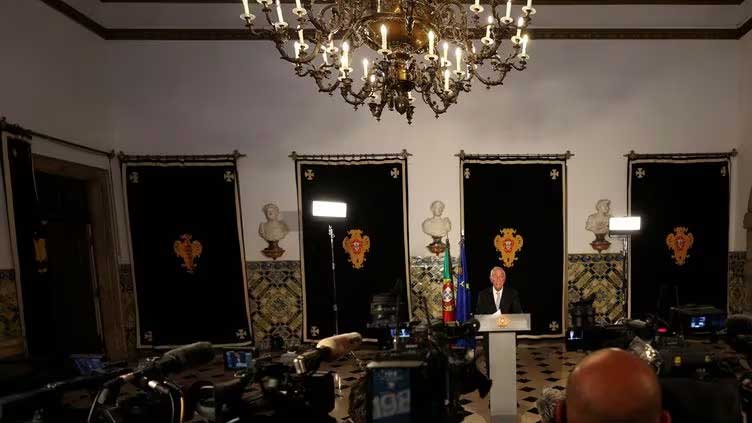Portuguese fear March snap election won't solve political crisis

World
Portuguese fear March snap election won't solve political crisis
LISBON (Reuters) - Portugal goes to the polls in March following the abrupt resignation of the prime minister amid a corruption probe, but voters and analysts fear prolonged political instability as the economic outlook worsens.
Antonio Costa stepped down on Tuesday over an investigation into alleged illegalities in his government's handling of green energy projects, forcing President Marcelo Rebelo de Sousa to call the snap election for March 10. Costa denies wrongdoing.
Opinion polls are scarce but a survey by Aximage two weeks ago, before the political crisis, showed Costa's Socialist Party (PS) with 28.6% of voter support and the centre-right opposition Social Democrats (PSD) with 24.9%.
Andre Azevedo Alves, political science professor at Lisbon's Catolica University and St Mary's University in London, said the corruption investigation was a "very strong blow" to any PS ambitions. Costa has been in power since 2015.
Analysts agree the PSD is likely to come out on top, but doubt its ability to build enough support to form a stable government.
Andre Ventura, the populist leader of the far-right Chega, the third-largest force in parliament, could become a kingmaker for the PSD if it fails to clinch a majority, but PSD chief Luis Montenegro has so far ruled out any such alliance.
"Assuming the likelihood that the PSD will not have (enough) votes to form a government without Chega... we may go from one political crisis to another," Alves said.
Ana Bernardino, 23, echoed these concerns while waiting for a bus in central Lisbon.
"It is a political crisis and in my opinion it's a bit frustrating that elections are being held again... I'm a bit afraid" of the political outlook, she said.
Another Lisbon resident, Maria Ines Ferreira, added: "It seems like the country is adrift."
Since coming to power in the aftermath of a debt crisis and international bailout, Costa has presided over a period of economic growth and sound public finances, but his government has been criticised for not doing enough to contain the rising cost of living in Portugal and wider Europe.
"This (power) goes from party to party, from minister to minister, but if we look carefully, the problems are always the same," Ferreira said. "We are the ones who pay the bill."


